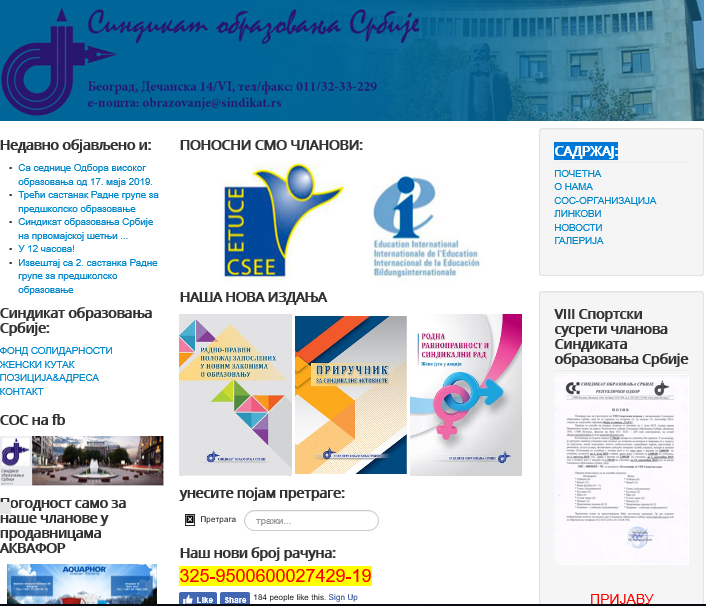Empowering female union members
Internal practice
Duration
Ongoing.
Reason it was developed
The union developed activities to raise awareness and empower its female members. In Serbia women have the same achievements in education except vulnerable groups (Roma girls), but at the same time they have lower employment rates and more family obligations. With a lower enrolment rate of children in preschool institutions, business activity of women is lower. However, there is a relatively high rate of women among employers and representatives in the National Assembly. Differences arise from the lower participation in the labour market, selection of professions with lower salaries, limitation of work force mobility and consequences of the crisis. A Gender Committee was established in 2011 by the union and all necessary documents were adopted. The Executive Board for Gender Committee was elected, and the President of Gender Committee was elected.
Activities
TUS has recently received the accreditation for seminars on gender equality as part of regular continuous professional development for teachers in Serbia. This accreditation is valid for a period of three years and was possible due to a new law on National Qualification Framework which allowed education trade unions to be recognised. The union organises a range of activities to empower its female members and female teachers, namely confidence workshops for those who aspire to be school leaders as well as training seminars on decision-making, negotiation, lobbying and communication skills. Furthermore, TUS holds information sessions during which female members learn about equality laws at international and national level and TUS’ position on national equality action plans which target the education sector. Moreover, TUS has conducted gender analyses of ICT programmes , and has run surveys on the motivation of women who participate in women’s committees. In addition, TUS engages in promotional activities. They have a “Women’s corner” on their website which contains information on gender issues and where TUS’ Newsletter “Sindikalno pero” can be found.
Results
It is very important that the work of the Women’s Committee became a regular topic of TUS planning and implementation processes. The question of gender equality became a topic of discussion in trade union work, and both men and women became aware of the legitimacy of women’s requests. The first results are: • The changes of the TUS Statute (it was regulated that at least one third of the members of TUS Republic Board and Executive Board should be women); • The defined TUS policy on gender equality, promoting new knowledge of participants and new skills for union work; • In parallel, the start of the new TUS project establishing Regional Centres (in cooperation with Lararforbundet from Sweden). This way of organising will provide the sustainability of the results from the gender equality work in the future.
Funding
The union attracts funding from external sources (including the EU) as well as dedicating internal resources to the issue.